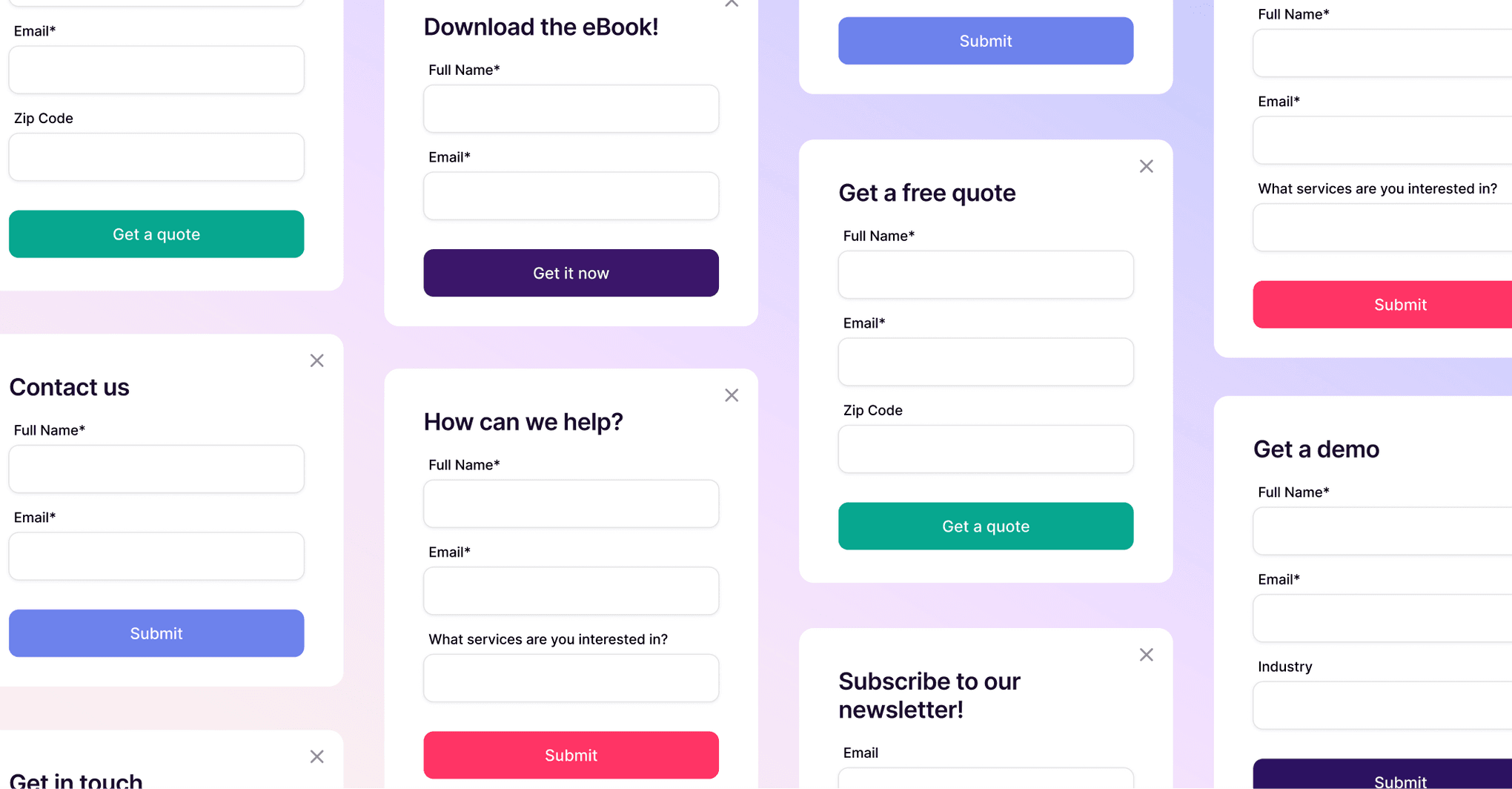Copper Staff
Contributors from members of the Copper team
Yes yes, we know what “sales tracking” sounds like. It just means you’re keeping track of numbers, right? But it’s so much more than that.
Sales tracking is monitoring and analyzing all the different parts of your sales process so you can make them better. And if you’re running a growing creative agency, consultancy, or media brand—where every pitch, proposal, and client call counts—optimizing your sales process becomes even more important.
This includes how deals are flowing through the pipeline, sales cycle length, win rate, how many leads are being followed up with… basically all the factors that come into play when trying to close a deal.w
Think of it as the GPS for your business development efforts. Without it, you’re just guessing. But with it? You’ve got a data driven, real-time roadmap to grow revenue, tighten your operations, and spot new opportunities.
Keep reading to learn why pipeline management and tracking is such a big deal, the benefits of doing it right, and how to best implement it in your day-to-day workflow (spoiler alert: it involves a customer relationship management (CRM) platform).
Why is sales tracking important?
Well for starters, because you need to make sure you’re closing enough deals to keep the lights on. But beyond revenue, optimizing your sales starts with clarity.
Sales tracking gives you real-time sales insights
Sales forecasting and pipeline management gives you up-to-date visibility into earned revenue, sales activity, pipeline velocity, and more. No more digging through spreadsheets or Slack threads to figure out where a deal stands.
For agencies juggling dozens of client relationships, or consultants navigating long sales cycles, this kind of insight is key to optimizing your sales process. It’s also critical for creating a sales strategy that actually reflects what’s happening on the ground.
Having easy access to this information also means you can forecast sales based on real-time customer data, not assumptions.
Sales tracking spots problems early
Whether it’s a bottleneck in your discovery calls or a sudden drop in qualified leads, sales tracking system helps you catch the red flags early.
For example, if your agency normally sees 20 qualified leads a week but that number suddenly drops, your CRM can act as your canary in the coal mine. Maybe your landing page isn’t converting, or a newsletter link is broken. Knowing in real time means fixing it in real time.
Sales tracking lets you coach your team better
Running a small team? Sales tracking gives you a bird’s eye view of individual performance, so you can celebrate the wins and course-correct the misses. For consultants or solo operators, it gives you something just as powerful: a mirror. You’ll see exactly where your time is going—and where your results are coming from.
In short, optimizing your sales isn’t about working harder. It’s about working smarter. And that starts with visibility.
Sales tracking lets you recognize problems before they become bigger problems.
With an effective sales tracking process, you can see how your opportunities are doing in real time—anytime, anywhere. This empowers sales leaders to alleviate potential issues before they have a chance to turn into larger ones.
For example, say you have your CRM dashboard set up to show you what your sales funnel looks like at a glance, and you notice there’s a drastic decrease in incoming leads. From this data, you can infer there might be a problem with an ad that was supposed to be running or a there might be a broken webpage that had a lead-gen form on it.
Whatever the reason, you’ll be able to let your marketing team know about this right away so you can get those leads flowing again.
Sales tracking lets you see how all your reps are doing at a glance.
When your company tracks its sales activity, sales managers are able to get real-time updates on how everyone is performing.
So, they know when individual sales reps are doing really well and when someone needs a little bit of a push. Similar to the previous point, this knowledge can let you catch potential issues before they get serious.
For example, if all but one sales rep are keeping up with their quotas, you’ll be able to look directly into the tracked customer data to find out where in the sales process the one rep is struggling and help them overcome that obstacle.
Sales tracking helps reps stay on top of their opportunities.
Having a strong process in place is also super beneficial for your reps because it can help them manage all their leads, tasks, and other sales activities to stay on top of their opportunities.
Sales tracking makes decision-making easy.
Knowing which activities are outstanding will help sales reps prioritize their tasks accordingly and ensure no activities in the funnel are being neglected.
For example, some sales reps tend to focus on the bottom of the funnel (arguably the most exciting part, since that’s where the deals get closed). By doing so, however, they might be forgetting about crucial top-of-funnel activities such as lead prospecting.
With sales tracking, no activity gets left behind.
Sales tracking lets you know exactly what you need to do to reach your goals.
Not only does it ensure reps give their attention to the sales activities at all stages of the funnel, but it tells them how much work is left to do at each stage of the funnel too if they want to reach their goal. It’ll even tell them when they’re falling behind and how to catch up again.
Which metrics should sales teams track?
Like we mentioned earlier, you should be tracking all the activities involved in closing a sale. So, depending on what your sales process looks like, exactly what you track could vary.
In general though, we can break down the metrics you should be tracking into three categories:
1. The sales activities fully within your control:
- Number of calls made
- Number of email proposals sent
- Number of responses
- Number of follow-ups
2. The sales activities within your indirect control:
- Average length of sales cycle
- Win rate
- Total open/closed opportunities
- Time spent on data entry
- Time spent lead prospecting
3. The sales activities not in your control (with Marketing, for example):
- Amount of leads added to the pipeline
- Percentage of qualified leads
Sales tracking helps reps stay organized
Even if you’re a one-person powerhouse, optimizing your sales process is a time game. The right tools help you prioritize high-impact actions and make sure no deal falls through the cracks.
With tracking in place, you can stop spending hours chasing dead-end leads and instead double down on the opportunities that actually move the needle. For a media brand, that might mean knowing which sponsors are hot and which ones have gone cold. For a consultant, it’s which proposals need nudging and which ones are ready to sign.
What to look for in sales tracking tools
So, now that we’ve covered why sales tracking matters—let’s talk about the how.
You could try to stitch things together with spreadsheets, email threads, and sticky notes… but we both know that’s chaos waiting to happen. The reality? The best way to manage your sales team is with a CRM tool that’s built for it.
Not all sales tracking systems are created equal. Especially if you’re not a traditional sales org and you’re balancing both client work and prospecting. For agencies, consultants, and media brands, you need something that fits the way you actually work.
Here’s what actually matters:
1. A visual pipeline that mirrors how you work
Agencies and media teams don’t follow a cookie-cutter sales process. Look for sales tracking tools that lets you customize your pipeline stages, automate follow-ups, and track both leads and projects. Bonus if you can see everything in one glance.
2. A single source of truth
This one’s big. A solid CRM should be your single source of truth—a place where all your contacts, deals, emails, notes, and documents live. No more scattered spreadsheets or lost PDFs.
When your team (even if that’s just you + one assistant) can work from one centralized place, decisions get easier and faster.
3. AI-powered insights
Smart CRMs go beyond just logging data. Look for AI powered features that actually recommend next steps, nudge you to follow up, or even highlight which deals are most likely to close. That’s the kind of tech that turns reactive sales teams into proactive ones.
4. Easy reporting
Whether you're presenting to clients, partners, or your own team, you need clean, understandable reports. Your tools should help you translate activity into action—without needing a degree in data science.
CRM is a sales manager’s BFF
By now, it’s clear: a CRM isn’t just part of your strategy—it is the strategy. It’s the engine that pulls all the pieces together and keeps your process running smoothly.
If the thought of tracking all this data has you thinking, “that’s way too much work,” then something’s off with the way you’re managing it.
What you use to manage your data should be relieving stress, not inducing it. With the right software—read: a CRM that actually works the way you do—this doesn’t need to be hard.
If you’re currently manually entering your data into a spreadsheet, then yeah, we get it. That sucks. If you’re thinking of all the data you need to import into your CRM… then you have it slightly better than the Excel bunch—but only very slightly.
Your CRM should be making your life easier, not harder. Almost like a virtual assistant, it should be taking your data, arranging it in a way that makes sense, then making it available to you to track your sales data at any given time.
Our advice? Get you a CRM with a visual sales pipeline (like Copper).
With a visual sales pipeline, you can see what’s working and what isn’t so much at a glance.
A good CRM will automate this for you, meaning all your data will always be just a few clicks away. No Excel formulas or manual cell updates required.
Remember, not all CRMs are created equal. If it takes more effort to input data than it does to act on it, your CRM tool is just another spreadsheet. Copper was built to change that—with visual pipelines, automated reminders, and built-in insights designed for relationship-first businesses like agencies and media brands.
The point is: having a strong sales tracking process in place will give you an upper hand over your competitors who might simply be counting the amount of calls and emails completed in a day and inputting it into a spreadsheet.
The additional data you collect through sales tracking—which ideally is sitting pretty, neat and organized in your CRM—can help get your sales team that much closer to reaching their goals.
It’s not just about tracking. It’s about transforming.
Here’s the thing: data driven doesn’t mean robotic. It means intentional.
The goal isn’t to obsess over numbers. It’s to use those numbers to optimize your sales process, refine your sales strategy, and ultimately make better decisions faster.
And when that system is AI powered, intuitive, and acts as your team’s single source of truth, the transformation is real. You stop reacting. You start leading.
Final thoughts
Sales tracking might sound like a back-office chore—but it’s actually a front-line growth driver. For agencies, consultants, and media companies, it’s your secret weapon for staying organized, efficient, and ahead of the competition.
Whether you're building a new sales strategy, coaching a lean team, or scaling up with bigger clients, optimizing your sales means knowing what’s working and what’s not—then acting on it.
So ditch the guesswork. Get a CRM that acts as your single source of truth, gives you AI powered insights, and supports your data driven growth.
Because when you track your sales right, you don’t just close deals—you build momentum.






